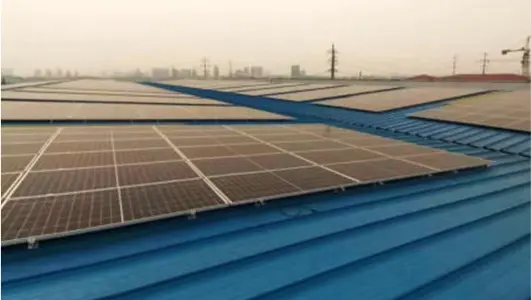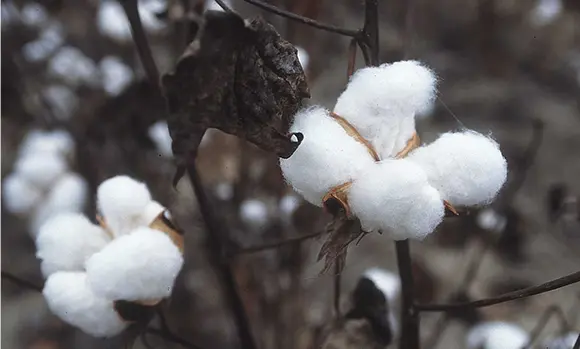JHT, as part of this human community, has been committed to conducting our business in an environmentally responsible manner and is devoted to the sustainable development of the whole industry.
JHT is aware that one of the most important steps we can take to lessen the effects of climate change is to limit our carbon emissions.
We have installed roof photovoltaic power panels in Wuxi manufacturing base to harness solar energy for production, the estimated annual solar power generation of which can be up to 2.2 million (KWH)
By using all the clean energy available, we can eliminate the need for 694 tons of conventional coal, which translates into 1729.9 tons of carbon dioxide emissions.
We are still investigating more environmentally friendly strategies, like installing LED lighting and encouraging JHT staff to save energy by doing simple things like turning off lights while leaving the office.






JHT brought in an automated Danish production waste collection system that collected all production line cut-off waste efficiently and hygienically. After processing, waste materials are repurposed as filling fibers in seat pads and pet beds.
Our production waste reduction, reuse, and recycling show our commitment to green production. JHT's automated waste collection system improves the efficiency of recycling.
Chemical management is a vital part of building a sustainable supply chain. JHT follows a rigorous process of chemical management from material to finished goods.

To ensure there’s no harmful substances in our products, JHT has got engaged in OEKO-TEX® STANDARD 100 since 2007. Now our STANDARD 100 certifications can cover most of our product ranges.
STANDARD 100 by OEKO-TEX® is an independent product label for all types of textile products tested for harmful substances – from yarns and fabrics to the ready-to-use items that can be bought in the shops.
If a textile article carries the STANDARD 100 label, you can be certain that every component of this article, every thread, button and other accessories, has been tested for harmful substances are harmless to human.

JHT has got our process supplier ( printing & dyeing factory) engaged in Road Map to Zero programme by ZDHC to improve the chemical management of our products from the supply Chain.
ZDHC's 170 Brands, Suppliers, Chemical Suppliers, and Solution Providers assist the fashion industry eliminate harmful chemicals from its global supply chain and implement more sustainable production to protect employees, consumers, and the environment.

OEKO-TEX® STeP is an independent certification system for brands, retailers and manufacturers from the textile and leather industry.
JHT has been certified by Oeko-tex STeP and has also got some of our partners certified as well. STeP enables an integrated view of production conditions from sustainable perspectives, which is for the whole supply chain instead of just for the production process of finished goods.
JHT is committed to sustainability by continuous efforts in developing sustainable products with recycled and biodegradable materials.

JHT has used natural materials including cotton, linen, hemp, wool, alpaca, silk, feather & down, etc. in product design and manufacturing.
Natural materials come from renewable nature recourses like plants and animals and have outstanding performance in softness, moisture absorption, or permeability because of their natural properties.

Recycling has become an efficient way to reduce the industry's impact on the environment. Recycling non-degradable materials can reduce waste pollution to the earth. In addition, it protects the environment by reducing the use of natural resources.
JHT has been working closely with the world’s leading brands Repreve® and Suprelle® Blue in producing textile materials with recycled plastic bottles. Besides, we develop other recycled products with Global Recycled Standards to ensure traceability and compliance.

JHT has been promoting the application of bio-degradable materials in our products as an important approach to sustainability. By returning to materials found in nature, bio-degradable materials help to reduce the long-term impact of microplastics in our oceans, landfills, and waterways.
We have been working closely with leading brands including CELYS™ and CiCLO, which have innovative technology to reduce the persistence of fugitive synthetic microfiber pollution caused by non-degradable synthetic fibers like polyester and polypropylene.
JHT uses an increasing quantity of cellulosic fibers and other bio-based fibers in our products, which are also vital parts of bio-degradable sustainable materials.
JHT uses a lot of sustainable packaging to protect the planet.

Reduced packaging is an effective way to reduce the products' carbon footprint and the impact of packaging on the planet.JHT design team has been working on creative reduced-packaging solutions for various home textile products.

JHT has developed recycled packaging with GRS-certified polyester non-woven fabric, PEVA bag, and TPU bag to lessen the environmental impact of plastic bags while maintaining performance.

Biodegradable packaging developed by JHT is environmentally friendly. Paper, pulp, natural textiles, and degradable non-wovens are eco-friendly alternatives to plastic packaging.